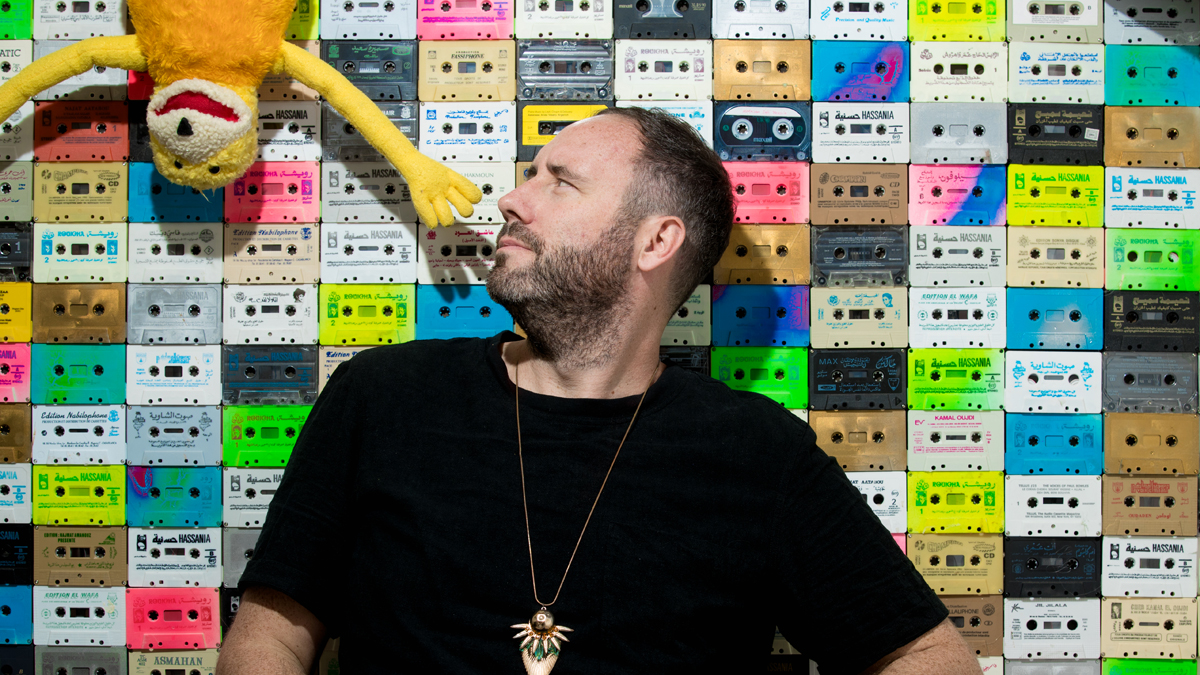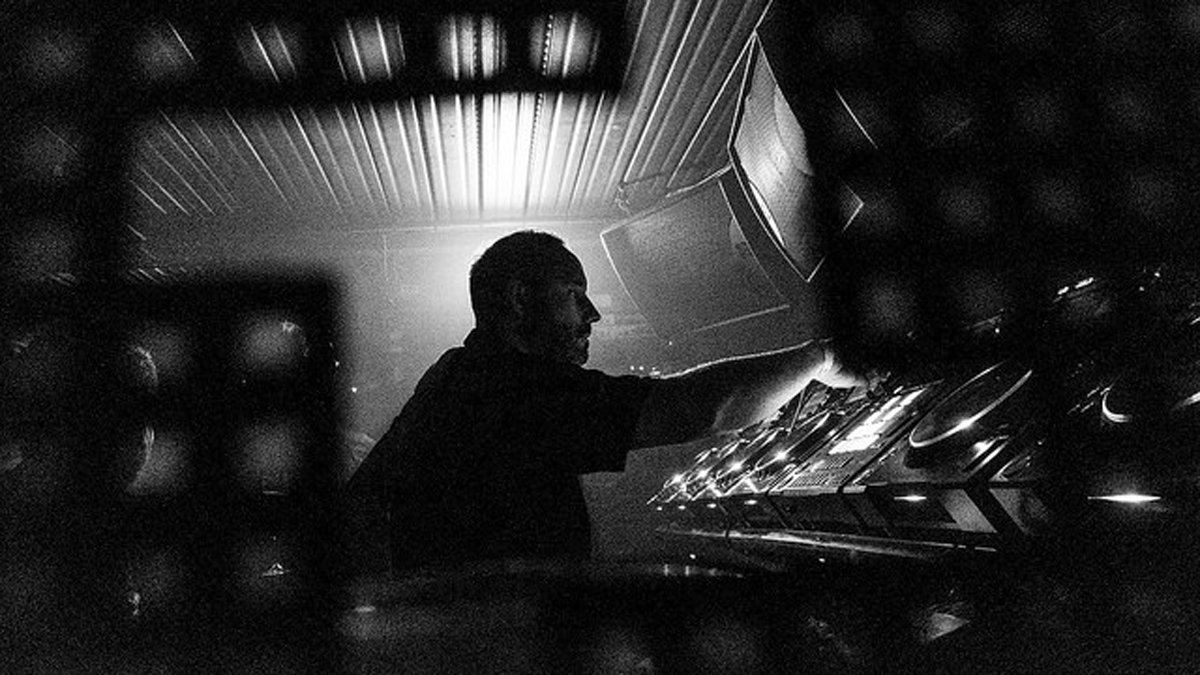Doorly: 5 things I’ve learned about music production
“It’s taken me years to realise is just how much much more fun and engaging it is getting hands-on with synths and controllers vs staring at a computer”

Want all the hottest music and gear news, reviews, deals, features and more, direct to your inbox? Sign up here.
You are now subscribed
Your newsletter sign-up was successful
Tipped for great things by none other than Pete Tong when he was just starting out, Doorly has fulfilled his potential by scoring multiple Beatport number 1s - including Piano Weapon, a collboaration with Shadow Child - and landing highly-prized DJing slots at the likes of SXSW, Creamfields and Lost Village.
His latest release, Witch House, strips things back a little, being a tech-leaning house groove that comes in both vocal and instrumental flavours.
As he sets himself up for what will doubtless be a big summer, we asked Doorly to give us a quintet of creative production tips.
1. Creativity comes in blocks
“Getting into that creative zone is a wonderful thing, and when you're there you want it to last forever. Unfortunately, it’s just not humanly possible.
“Some get there easier than others, and switching yourself out of everyday mode into creative mode is one of those things you will eventually find your own process for. I'm useless in daylight hours and my mind only gets creative after dark, which is annoying but also good, as that’s when I need to be preforming mostly. I guess that’s 20 years of conditioning that’s made me like that.
“Anyway, when you're fighting to get moving on your music or when you hit a creative block, all you usually see are two options: give up for now or keep fighting it.
“Getting into that creative zone is a wonderful thing, and when you're there you want it to last forever. Unfortunately, it’s just not humanly possible."
“Unfortunately, both are going to be bad time management, and it’s unlikely you will be finishing that track during that session. Meditating can help as well, but I find that later in the session, when fatigue has kicked in, it can send me off to sleep.
Want all the hottest music and gear news, reviews, deals, features and more, direct to your inbox? Sign up here.
“What I’ve learned to do is switch my focus to something totally unrelated but still creative, so that my mind stays in that creative mode but my interest and freshness is invigorated in a new way.
“There’s loads of fun stuff you can do, depending on your interests. Do some painting. I'm currently writing a book so I’ll knock out a couple of pages of that, or if you want to do something more fun, why not learning a new skill to impress your friends? There was a year when I would teach myself silly magic tricks to surprise fans when watching me up close. To kill small talk at afterparties I started teaching myself how to make things out of towels (swans, etc) for my house guests.
“You'll be surprised how something creative but different will clear your palate and give you fresh eyes and ears on that project you were stuck on.”
2. Be smart about your sampling
“Sampling is an entire art form in itself. Obviously, making something totally original is wonderful, but sometimes, the magic of that killer sample can be everything.
“But if you're going down that route, you need to make sure that your sample library is a priority and really try not to use stuff that’s been used before. I find that if tracks are online somewhere digitally, there’s a very good chance they've been used before, so take yourself to some charity shops/thrift stores and have a dig in the vinyl buckets.
“I do it almost every day now when I'm on tour and I constantly find so much gold - weird trippy rare stuff that’s great for sampling. It’s a bit of pot luck, but look for interesting-looking world music albums and you will rarely pay more than 50p per record, usually less. Then get them home, set yourself up a nice comfortable ripping station at your studio desk and just leave them on while you're working on non-music stuff. Listen out for samples and get ready to rip into your computer - I promise you will strike gold very quickly!
“You can be a real audiophile about the ripping equipment, but you can easily get started with something cheap like one of the ION USB turntables, which work great and are around 30 quid or less. When you've finished with the records that were of no use, give them back to the charity shop and at least your money has gone to a good place. Or, keep the cool stuff and in a year you'll have the best easy listening vinyl collection in town!”
3. Learn your gear inside out
“With music production and DJing you will never stop learning. There's always going to be a new synth, VST, DAW, CDJ etc out there to master, and you need to make sure you're using your time wisely, especially once you're on the road.
“A gamechanger for me has been switching watching sitcoms and movies etc for educational videos when I’m on planes and stuff. The night before traveling I’ll pick a piece of equipment or software I don't understand and pull up some YouTube videos of somebody demonstrating or training on them, then use one of those very naughty YouTube Ripper sites to rip the videos so that I can take them and watch them offline on the road.
“Like anything in the world, the time you put into something directly results what you get out of it, so this has been a really big help time management-wise - killing time with something useful that I still enjoy.
“Learn your equipment and all of its features. It will pay dividends for your workflow, effectiveness of time spent using it, and confidence on stage.”
4. Find inspiration through new music
“It’s really important that you put at least one day aside per week to dig and hunt for new music. This is important on so many levels, and you need to make yourself accountable.
“For DJ gigs, if you're just playing the same tracks all the time, people will notice in this age of everything being streamed and recorded, so that sucks. Plus, think of that feeling when you drop that track you've found that day and you're super excited to hear it. That shows on stage and that energy is infectious.
“Also, with music changing and shifting so rapidly, and so many producers being able to release music digitally so fast, it’s a great way to find inspiration for your new sounds as a producer as well, and even find new collaborators to work with.
“It’s really important that you put at least one day aside per week to dig and hunt for new music."
“It’s one of those jobs that, again, takes a bit of a kick in the ass to get started, but once you start you don't want to stop, especially when it's fruitful.
“A good way to keep yourself accountable is to record a weekly podcast, so that each week you must have some fresh music for that at the very least. I can't recommend vinyl shopping highly enough - it really is where the highest calibre of music comes out first, and your time spent looking vs golden nugget finding is so much higher.
“Obviously, all the digital sites are a bottomless pit of magic as well, and I really love Bandcamp. There's so much rare independent stuff on there, and the system works like a bit of a spider’s web. Once you start finding stuff it just snowballs and you have to tear yourself away from it!”

5. Get hands-on
“One thing it’s taken me years to realise is just how much much more fun and engaging it is getting hands-on with synths and controllers vs staring at a computer. I feel like my stamina increases and I accidentally stumble onto magic much more easily when I can just jam out.
“Obviously, it seems daunting at first because of the cost, but there are so many affordable controllers and synths out there that will really help you create some fun stuff and then also be useful if you ever want to be able to perform live.
“I'm a huge fan of the Pioneer DJS-1000 and Toraiz which are so much fun to throw samples into to manipulate. The Akai MPC Live and Force are also wicked. And in my studio I love the Maschine Jam and Kontrol S49 Keyboard so that I can spend less time staring at my screen and more time jamming.
“Then there's a whole host of synths; it’s a bit of a rabbit hole once you get started, but there's some really cheap stuff out there like the Behringer clones, the Roland Aria stuff and the Korg volca range. I just ordered myself a Vibraphone as I just love the sound of it and want to learn how to play it during my creative block moments. Expect to hear that in my music a lot this year!”

I’m the Deputy Editor of MusicRadar, having worked on the site since its launch in 2007. I previously spent eight years working on our sister magazine, Computer Music. I’ve been playing the piano, gigging in bands and failing to finish tracks at home for more than 30 years, 24 of which I’ve also spent writing about music and the ever-changing technology used to make it.